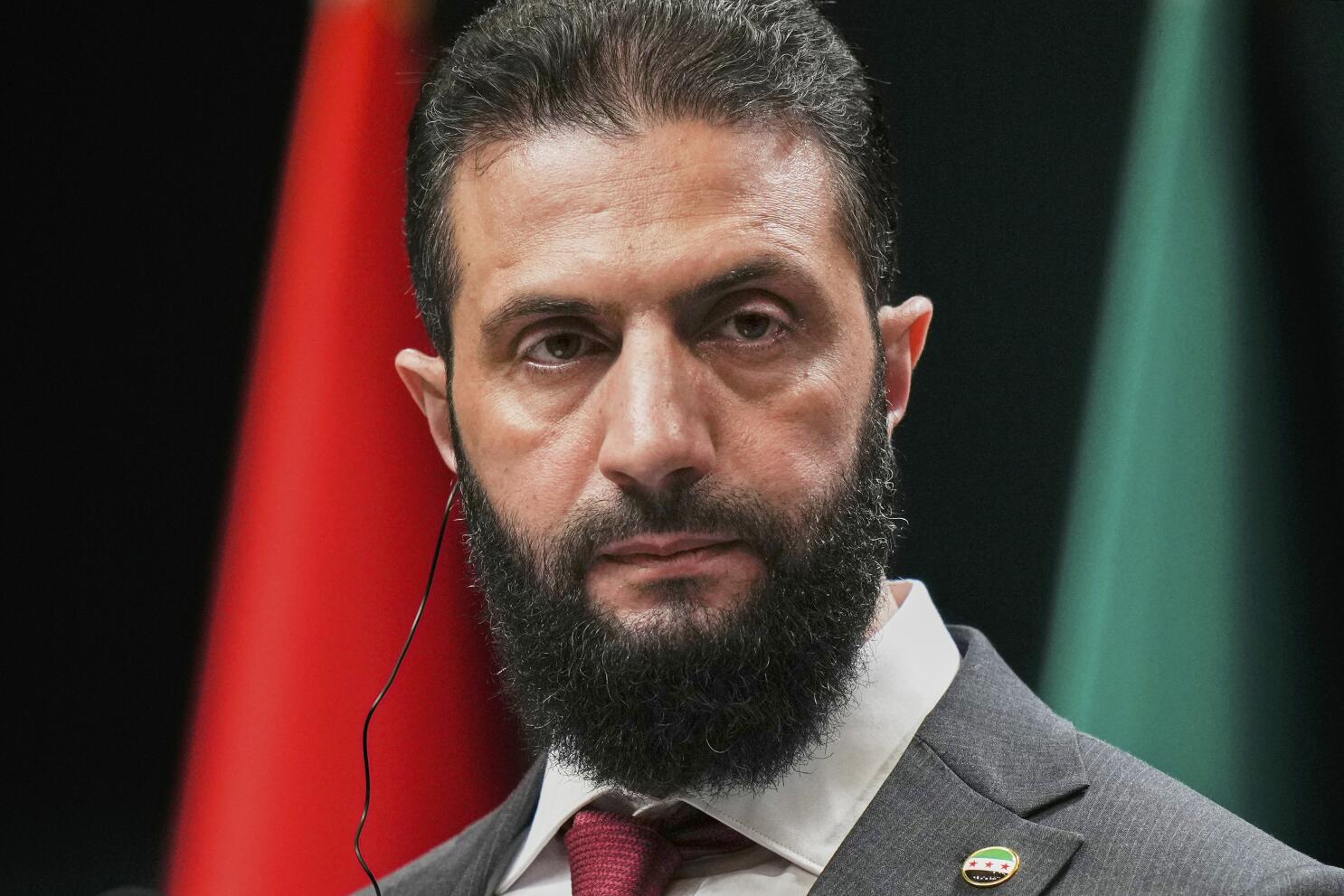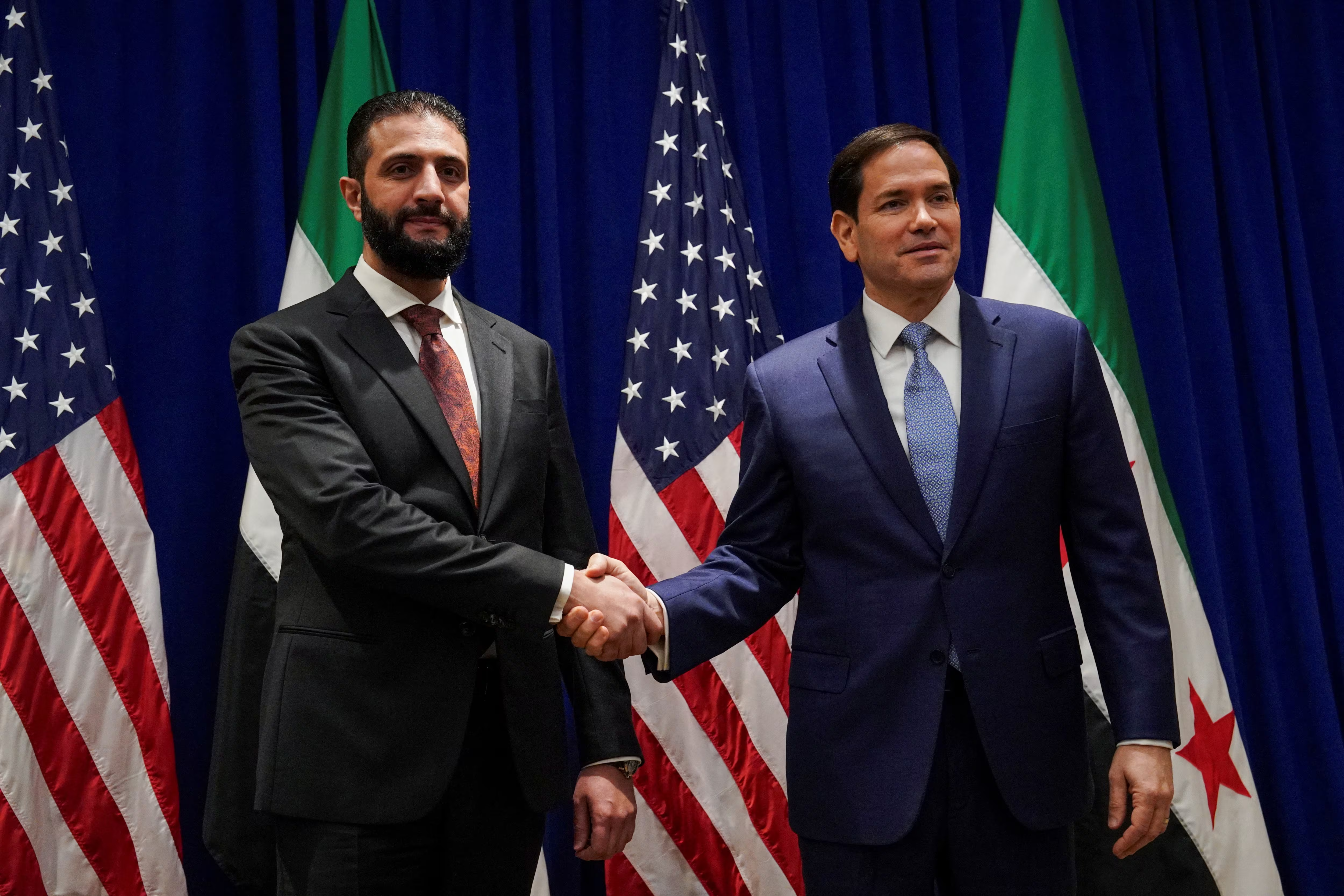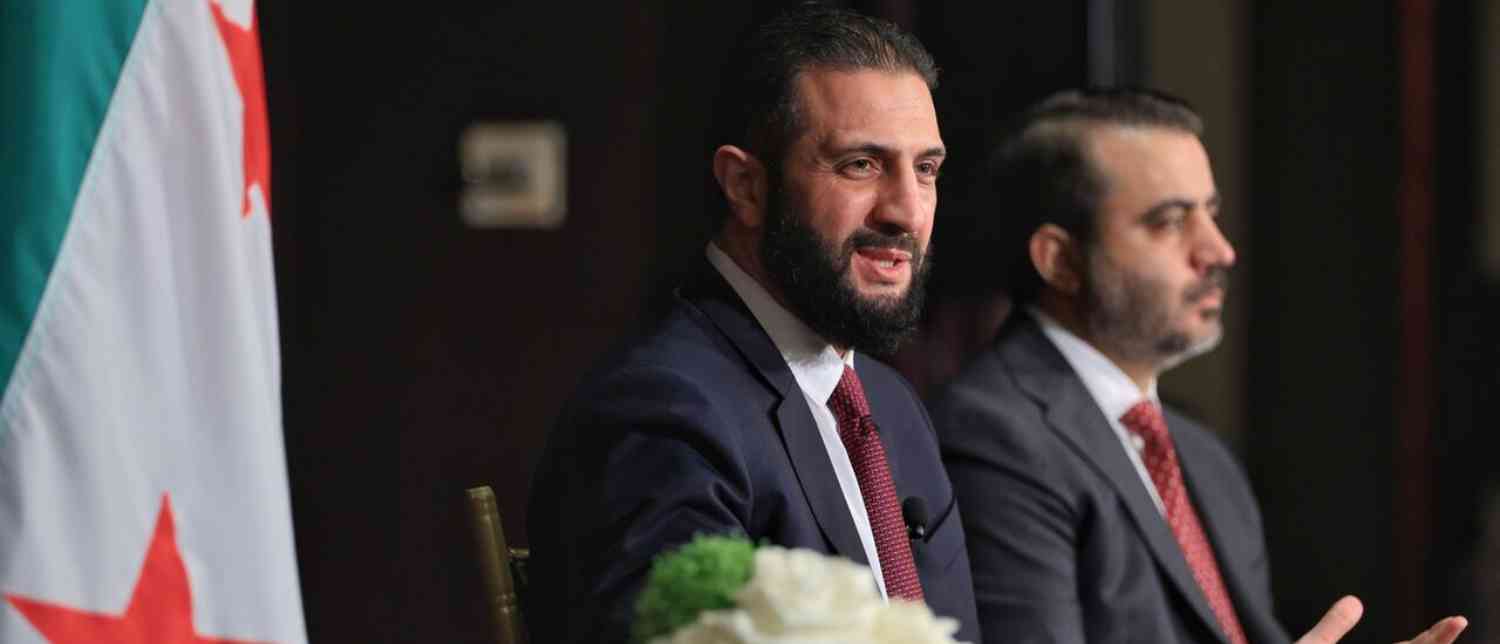Nearly 24 years after the September 11 attacks, Syrian President Ahmad Hussein al-Sharaa, formerly known by his nom de guerre Abu Mohammad al-Julani, has arrived in New York to address the United Nations General Assembly (UNGA). His visit marks the first appearance of a Syrian president at the gathering in nearly six decades, signaling a major shift in Syria’s diplomatic engagement on the global stage.
Ahmad Hussein al-Sharaa’s ascent to power has been both remarkable and controversial, drawing intense international scrutiny. Born in Riyadh, Saudi Arabia, in 1982 to a Syrian Sunni family, al-Sharaa spent his formative years in Damascus. His trajectory from a militant insurgent to head of state underscores one of the most extraordinary political transformations in recent Middle Eastern history.

From Militancy to Presidency: The Extraordinary Journey of Ahmad al-Sharaa
Before his rise to Syria’s presidency, al-Sharaa was heavily involved in militant operations in Iraq and Syria. He fought in the Iraqi insurgency as a member of al-Qaeda in Iraq, a group connected to the network responsible for the 2001 attacks in the United States. While al-Sharaa was not directly involved in planning or executing 9/11, his leadership of al-Qaeda-affiliated groups in Iraq tied him to the same extremist ideology.
Captured by U.S. forces in 2006, al-Sharaa spent five years in detention before being released in 2011. After his release, he founded the al-Nusra Front, al-Qaeda’s Syrian affiliate, with the explicit goal of opposing the Assad regime. In 2016, he publicly distanced the group from al-Qaeda and rebranded it as a nationalist organization. Eventually, he became the leader of the Hay’at Tahrir al-Sham (HTS) coalition, which played a decisive role in toppling Bashar al-Assad in late 2024.
His political ascent has been unprecedented. From militant insurgent to the head of a government recognized by key international actors, al-Sharaa’s journey reflects both the volatility and the transformative potential of Syrian politics. His presence at the UNGA underscores a historic moment: the first Syrian president to attend the assembly since 1967.
Al Sharaa, former Al Qaeda, arrives in New York, site of the 9/11 terror attacks, to attend the UN meet a mere 5 km from where the Twin Towers stood. Wild trajectory, if there ever was one... https://t.co/ypYyNVjwZ0— Kabir Taneja (@KabirTaneja) September 22, 2025
U.S. Engagement Sparks Controversy
Al-Sharaa’s visit to New York has reignited debates over U.S. foreign policy in the Middle East, particularly regarding counterterrorism commitments. Previously, al-Sharaa and his organization HTS were designated as terrorist entities by the United States. Al-Sharaa himself was once the subject of a $10 million bounty. Critics argue that the U.S.’s recent diplomatic engagement and the removal of HTS and al-Sharaa from the terrorist designation list in July 2025 risk sending a troubling message to other extremist groups.
“Engaging with a former extremist could send a concerning signal to other groups with similar ideologies,” analysts warned. Some experts contend that the U.S.’s strategic interest in Syria may be overshadowing its counterterrorism principles.
President Donald Trump met with al-Sharaa in Riyadh in May 2025, signaling a thaw in U.S.-Syria relations. Following the meeting, the U.S. lifted many sanctions imposed during Assad’s rule to facilitate Syria’s reconstruction and promote regional stability. Observers note that these moves reflect a broader U.S. strategy aimed at counterbalancing Russian influence in the Middle East while stabilizing Syria under its new leadership.
#BreakingNews
America's former wanted terrorist and current Syrian President Ahmad Al Shara is on a visit to the USA!
This is happening after many years. The last time a terrorist reached America by plane was on 9/11. pic.twitter.com/zsbgfZQOk6— Bharat Spectrum (@BharatSpectrum) September 22, 2025
Al-Qaeda and the 9/11 Connection
The connection between al-Sharaa’s militant past and the broader context of al-Qaeda remains a focal point in assessing his current political legitimacy. While al-Sharaa was not directly involved in the 9/11 attacks, his leadership of al-Qaeda-affiliated networks in Iraq and Syria links him ideologically and operationally to the group responsible for those attacks.
Following his release from U.S. custody in 2011, he established the al-Nusra Front to oppose the Assad regime. In 2016, the organization underwent a strategic rebranding, distancing itself from transnational jihadism in favor of a more nationalist agenda. Despite these changes, the historical associations continue to influence perceptions of his government internationally.
The U.S. delisting of HTS and al-Sharaa in July 2025 was part of a broader effort to engage with Syria’s new leadership. The move aimed to support stabilization efforts while signaling a willingness to collaborate with the reformed government, despite its controversial past.
Domestic Challenges: Sectarian Tensions and Governance
Despite his international recognition, al-Sharaa faces significant internal challenges. Sectarian violence, especially targeting minority communities such as the Druze and Alawites, poses a threat to national unity. Kurdish forces in the northeast and Druze communities in the south continue to resist full integration into the state, demanding greater autonomy.
Al-Sharaa has opposed federalism, advocating for a unified Syria. However, growing calls for decentralization and minority rights indicate a complex path toward reconciliation. Observers warn that unresolved sectarian grievances could reignite large-scale conflict. Effective governance, protection of minority rights, and political inclusion will be critical tests for al-Sharaa in consolidating domestic power.

Syria’s Call for U.S. Sanctions Relief
During his visit to New York, al-Sharaa renewed his call for Washington to formally lift U.S. sanctions imposed under the 2019 Caesar Act. While President Trump had already lifted most sanctions following his meeting with al-Sharaa in Riyadh, the Caesar Syria Civil Protection Act remains U.S. law.
“We have a big mission to build the economy,” Sharaa said. “Syria has a diverse workforce. They love to work; it’s in its genes. So don’t be worried, just lift the sanctions and you will see the results.”
His statements highlight Syria’s urgent need for economic reconstruction after years of civil war. Al-Sharaa’s visit also included a meeting with Secretary of State Marco Rubio, where ongoing counterterrorism efforts, locating missing Americans, and the importance of Israel-Syria relations were discussed. A State Department readout emphasized opportunities to “build a stable and sovereign nation” but did not address the remaining sanctions.
Regional Diplomacy: Israel and Security Negotiations
Washington has been pressuring Syria to reach a security agreement with Israel. Although Assad’s government has been overthrown, longstanding territorial disputes and political mistrust continue to hinder relations between the two countries.
Sharaa indicated that negotiations had reached an advanced stage, aiming to secure a halt to Israeli airstrikes and the withdrawal of Israeli troops from southern Syria. On the prospects of Syria joining the Abraham Accords, Sharaa stated:
“Israel must withdraw from Syrian land, and security concerns can be addressed in talks. The question is whether Israel’s concerns are truly about security or about expansionist designs — this is what the talks will reveal.”
Senator Lindsey Graham, a Trump ally, expressed support for canceling sanctions against Syria if Sharaa’s government formally moved toward a security deal with Israel and joined a coalition against the Islamic State extremist group.

From Battlefield to Diplomatic Dialogue
Al-Sharaa’s history with the U.S. is a unique testament to transformation. He was once a militant with a $10 million bounty on his head and fought U.S. forces in Iraq, yet he was later interviewed in New York by retired General David Petraeus, who commanded U.S. forces during the Iraq War.
“It’s good that we were once in the battlefield zone and have now moved to another theater — that of dialogue,” Sharaa told Petraeus, highlighting the transition from conflict to diplomatic engagement.
Ongoing Domestic Fragility
Syria remains deeply fractured following 13 years of civil war. Sharaa acknowledged that a deal with Kurdish-led Syrian Democratic Forces in the northeast had been delayed. Calls for decentralization by Kurdish parties, he said, risked igniting wider conflict with implications for neighboring Iraq and Turkey.
“These could present threats to Iraq, Turkey, and even Syria,” Sharaa warned, underscoring the delicate balance required in managing internal divisions while pursuing national stability.
A Historic UNGA Appearance
Sharaa’s attendance at the UN General Assembly represents a historic moment for Syria and the international community. He is the first Syrian president to attend the assembly since 1967 and is expected to deliver his inaugural address at the 80th session.
While his past as a militant Islamist continues to shape global perceptions, his current diplomatic engagement signals a pragmatic approach to governance and international relations. Analysts note that the coming months will be pivotal in determining whether Sharaa can consolidate domestic power while maintaining cautious legitimacy on the world stage.
The Road Ahead
Ahmad Hussein al-Sharaa’s rise from an insurgent leader affiliated with al-Qaeda to the presidency of Syria is unprecedented in modern history. His visit to the United Nations General Assembly not only symbolizes Syria’s renewed engagement with the international community but also highlights the complexities of modern geopolitics, where past militancy, domestic reconstruction, and regional diplomacy intersect.
With the U.S. lifting sanctions, ongoing security negotiations with Israel, and the delicate management of internal sectarian divisions, Sharaa’s government faces a critical period. How the international community navigates the tension between pragmatism and ethical foreign policy will shape Syria’s trajectory and the broader stability of the Middle East.
With inputs from agencies
Image Source: Multiple agencies
© Copyright 2025. All Rights Reserved. Powered by Vygr Media.

























